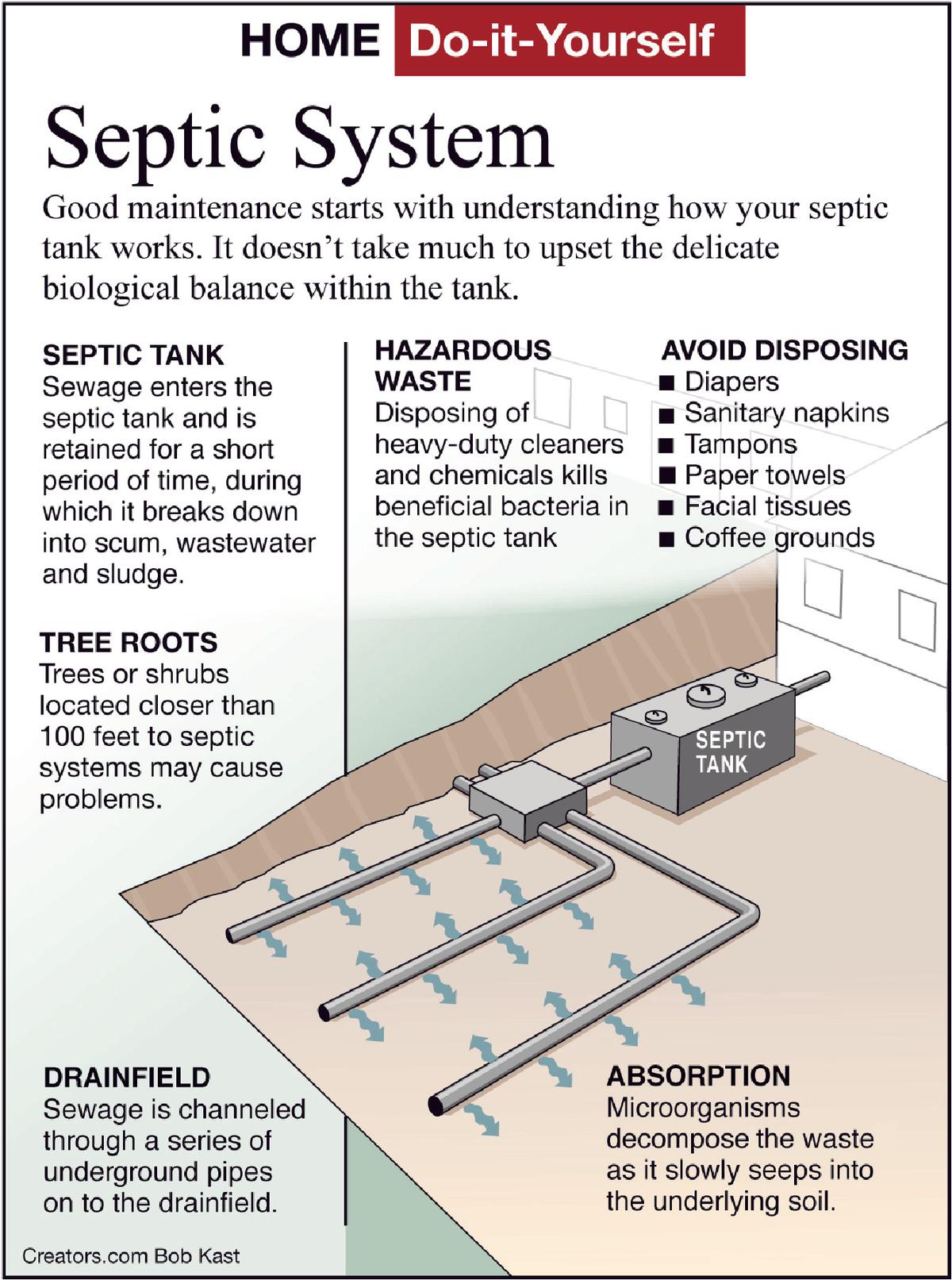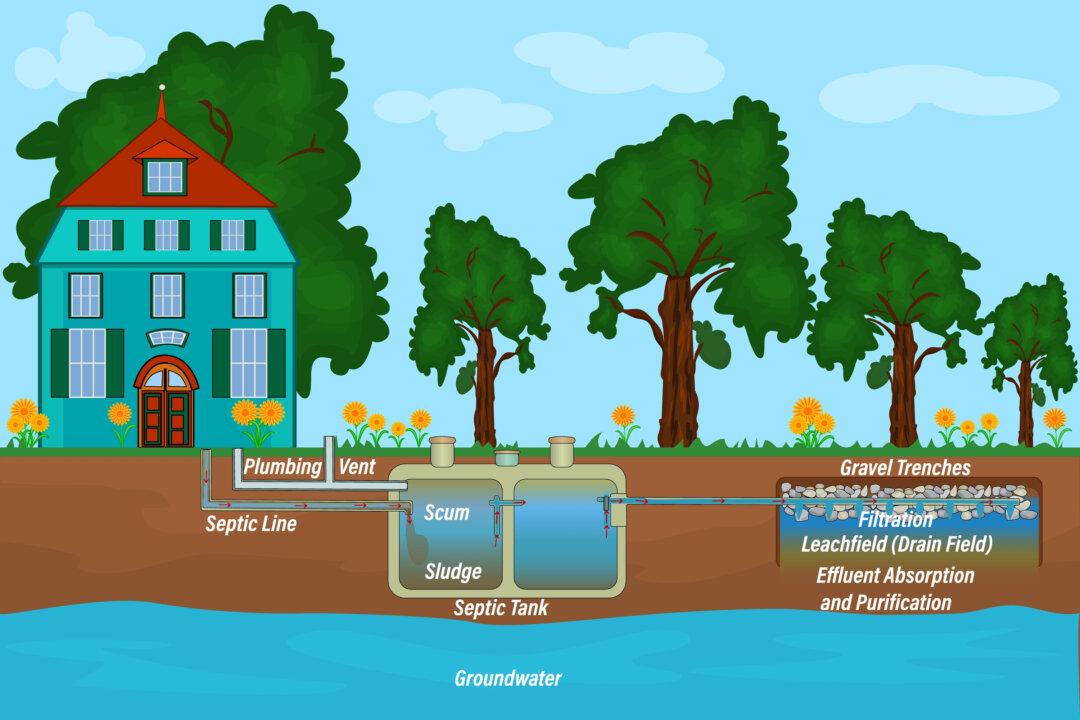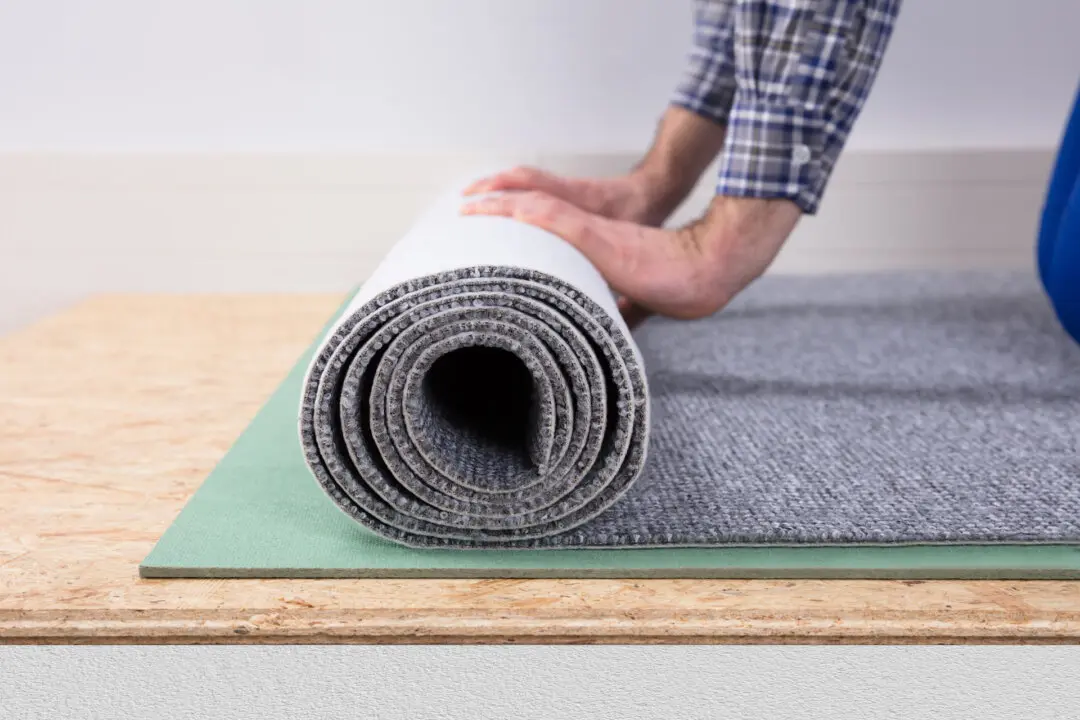Dear James: We have a septic system at our small farmhouse. It would be convenient to add a garbage disposal in the kitchen. Can we use a garbage disposal with a septic system?—Joyce D.
Dear Joyce: That is a myth that a garbage disposal cannot be used with a modern septic system. Even in major developed cities, there are millions of homes with septic systems and the majority of them have garbage disposals in their kitchens.
The only possible issue could be from foods with extremely high fat and/or grease concentrations; otherwise, your garbage disposal should not cause problems. In fact, it may help the “good” bacteria base thrive in the septic tank to break down human wastes and other particles.
The worst problems are often caused by household cleaners, antibacterial soaps, solvents, etc. that kill some of the beneficial bacteria in the septic tank. Without enough good bacteria, the entire septic system can become ineffective.
It helps to understand how a typical septic system works. There are two basic components: the tank and the drainfield. The tank, usually in the 750- to 1,500-gallon range (larger families require larger tanks), holds the waste.
In the tank, the bacteria begin the process of breaking down the liquid wastes and the tiny particles. The various components of the waste naturally separate in the septic tank. A small amount will sink to the bottom, and this must be cleaned out on a regular basis.
If your septic tank is not operating properly because of a poor bacteria base, a lot of waste particles begin to settle to the bottom and become sludge. As the tank fills with sludge, there is less room for liquids, so the problem rapidly worsens. A professional cleaning will be required.
The tank is connected to the drainfield with perforated pipe. These pipes are surrounded by gravel and soil. As the liquids leave the tank, they flow through the pipes and out into the gravel area. Here, more natural bacteria have time to slowly break down the rest of the wastes into harmless liquids.
If you are really a heavy garbage disposal user when you cook and you are concerned, InSinkErator makes a special garbage disposal for septic systems. It has a snap-on Bio-Charge cartridge that automatically dispenses enzymes that are beneficial to the good bacteria.
There are many septic tank additives advertised to help make your septic system function better. Some help and others may hurt the bacteria. Several that the state of Washington tested and found safe are: Microbe-Lift, MicrobeLiftStore.com; Obsession Products, ObsessionProducts.com; and Rid-X, Rid-X.com.
Here are some basic tips to keep your septic system functioning properly.
- Don’t flush solid items that take up space in the septic tank and reduce the water volume. These items include sanitary napkins, sand, cat litter, cigarette butts, etc.
- Space out your water usage throughout the day. This reduces large flows of wastewater into the tank that may force partially broken-down wastes out into the drainfield pipes. A heavy load of particles can ruin your drainfield over time.
- Minimize the amount of cooking grease that goes down the drain. Catch excessive fats and grease in jars and put them out in the trash. If you have wildlife in your area, put it outside and the animals will come to eat it.
- It is important to have grass or some type of vegetation growing over the drainfield area. The bacteria near plant roots plus the soil aeration from the roots helps to thoroughly break down the wastes. Make sure the drainpipe from your gutters does not terminate in the drainfield area.






